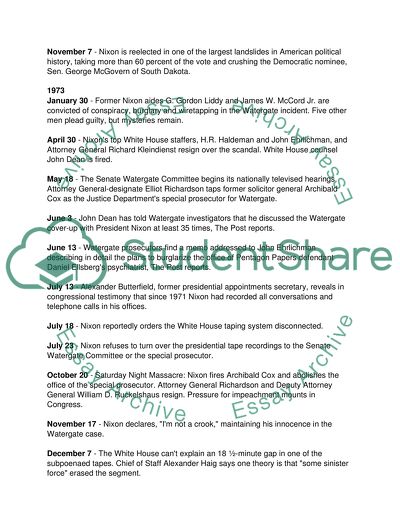Cite this document
(“Watergate Scandal Research Paper Example | Topics and Well Written Essays - 2500 words”, n.d.)
Retrieved de https://studentshare.org/history/1392602-watergate
Retrieved de https://studentshare.org/history/1392602-watergate
(Watergate Scandal Research Paper Example | Topics and Well Written Essays - 2500 Words)
https://studentshare.org/history/1392602-watergate.
https://studentshare.org/history/1392602-watergate.
“Watergate Scandal Research Paper Example | Topics and Well Written Essays - 2500 Words”, n.d. https://studentshare.org/history/1392602-watergate.


